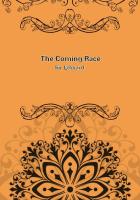Primitive Society and Ancient Law
The necessity of submitting the subject of jurisprudence toscientific treatment has never been entirely lost sight of inmodern times, and the essays which the consciousness of thisnecessity has produced have proceeded from minds of very variouscalibre, but there is not much presumption, I think, in assertingthat what has hitherto stood in the place of a science has forthe most part been a set of guesses, those very guesses of theRoman lawyers which were examined in the two preceding chapters.
A series of explicit statements, recognising and adopting theseconjectural theories of a natural state, and of a system ofprinciples congenial to it, has been continued with but briefinterruption from the days of their inventors to our own. Theyappear in the annotations of the Glossators who founded modernjurisprudence, and in the writings of the scholastic jurists whosucceeded them. They are visible in the dogmas of the canonists.
They are thrust into prominence by those civilians of marvellouserudition, who flourished at the revival of ancient letters.
Grotius and his successors invested them not less with brilliancyand plausibility than with practical importance. They may be readin the introductory chapters of our own Blackstone, who hastranscribed them textually from Burlamaqui, and wherever themanuals published in the present day for the guidance of thestudent or the practitioner begin with any discussion of thefirst principles of law, it always resolves itself into arestatement of the Roman hypothesis. It is however from thedisguises with which these conjectures sometimes clothethemselves, quite as much as from their native form, that we gainan adequate idea of the subtlety with which they mix themselvesin human thought. The Lockeian theory of the origin of Law in aSocial Compact scarcely conceals its Roman derivation, and indeedis only the dress by which the ancient views were rendered moreattractive to a particular generation of the moderns; but on theother hand the theory of Hobbes on the same subject was purposelydevised to repudiate the reality of a law of nature as conceivedby the Romans and their disciples. Yet these two theories, whichlong divided the reflecting politicians of England into hostilecamps, resemble each other strictly in their fundamentalassumption of a non-historic, unverifiable, condition of therace. Their authors differed as to the characteristics of theprae-social state, and as to the nature of the abnormal action bywhich men lifted themselves out of it into that socialorganisation with which alone we are acquainted, but they agreedin thinking that a great chasm separated man in his primitivecondition from man in society, and this notion we cannot doubtthat they borrowed, consciously or unconsciously, from theRomans. If indeed the phenomena of law be regarded in the way inwhich these theorists regarded them -- that is, as one vastcomplex whole -- it is not surprising that the mind should oftenevade the task it has set to itself by falling back on someingenious conjecture which (plausibly interpreted) will seem toreconcile everything, or else that it should sometimes abjure indespair the labour of systematization.
From the theories of jurisprudence which have the samespeculative basis as the Roman doctrine two of much celebritymust be excepted. The first of them is that associated with thegreat name of Montesquieu. Though there are some ambiguousexpressions in the early part of the Esprit des Lois, which seemto show its writer's unwillingness to break quite openly with theviews hitherto popular the general drift of the book is certainlyto indicate a very different conception of its subject from anywhich had been entertained before. It has often been noticedthat, amidst the vast variety of examples which, in its immensewidth of survey, it sweeps together from supposed systems ofjurisprudence, there is an evident anxiety to thrust intoespecial prominence those manners and institutions which astonishthe civilised reader by their uncouthness, strangeness, orindecency. The inference constancy suggested is, that laws arethe creatures of climate, local situation, accident, or imposture-- the fruit of any causes except those which appear to operatewith tolerable constancy. Montesquieu seems, in fact, to havelooked on the nature of man as entirely plastic, as passivelyreproducing the impressions, and submitting implicitly to theimpulses, which it receives from without. And here no doubt liesthe error which vitiates his system as a system. He greatlyunderrates the stability of human nature. He pays little or noregard to the inherited qualities of the race, those qualitieswhich each generation receives from its predecessors, andtransmits but slightly altered to the generation which followsit. It is quite true, indeed, that no complete account can begiven of social phenomena, and consequently of laws, till dueallowance has been made for those modifying causes which arenoticed in the Esprit des Lois; but their number and their forceappear to have been overestimated by Montesquieu. Many of theanomalies which he parades have since been shown to rest on falsereport or erroneous construction, and of those which remain not afew prove the permanence rather than the variableness of maw'snature, since they are relics of older stages of the race whichhave obstinately defied the influences that have elsewhere hadeffect. The truth is that the stable part of our mental, moral,and physical constitution is the largest part of it, and theresistance it opposes to change is such that, though thevariations of human society in a portion of the world are plainenough, they are neither so rapid nor so extensive that theiramount, character, and general direction cannot be ascertained.















